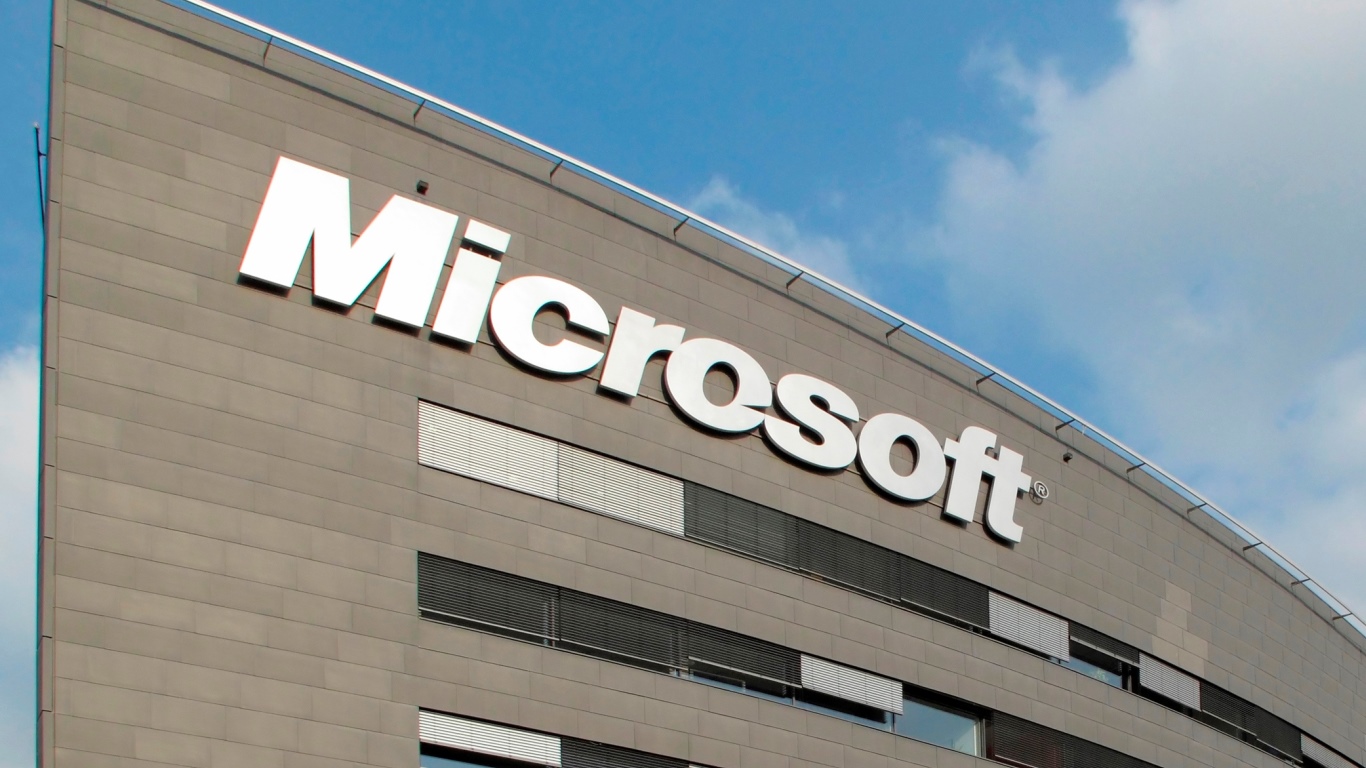Investing
The Next 10 US Companies That Might Catch Apple in the $1 Trillion Value Club

Published:
Last Updated:

In the old days, there were some clear lines between a stock being classified as large cap or mega-cap. The dividing line for mega-cap used to be $100 billion in market value. Last week’s stock market news was dominated by Apple Inc. (NASDAQ: AAPL) becoming the first U.S. company in history to be worth $1 trillion. Apple’s shares may have experienced some light profit taking, but it actually has been light and the shares briefly hit a new high on Monday.
24/7 Wall St. has run a screen of the top companies by market value (or market capitalization) to see which might be next in line for the $1 trillion market cap. As it turns out, there is a huge difference between those companies with the top three market caps and those ranked seventh through tenth.
Other technology giants such as Amazon, Alphabet and Microsoft are all within striking distance of that $1 trillion market cap, and some of the other larger companies might have to double or more before their shares would be challenging the $1 trillion zenith. This is also at a time when the U.S. gross domestic product is almost $20 trillion.
Apple hit the $1 trillion mark after posting earnings, and its shares were last seen up 22% so far in 2018.
Below are the top 10 U.S. companies behind Apple based on market capitalization and how their stock performance has been in 2018. It was interesting to see that only two of the top-10 U.S. companies were trading down so far in 2018.
Amazon.com Inc.’s (NASDAQ: AMZN) market cap was at $877 billion and shares were last seen up 55% so far in 2018. Jeff Bezos has proven that he will go all the way to keep Amazon growing and growing. With the acquisition of Whole Foods, he can even do it with stronger profits.
Alphabet Inc. (NASDAQ: GOOGL) was at $852 billion, and shares were up 17% so far in 2018. As a reminder, there are also the “GOOG” shares now that it has a split-class of stock. The former Google had a better earnings season than some of the other top tech stocks.
Microsoft Corp. (NASDAQ: MSFT) was last seen at $832 billion, and shares were up 26% so far in 2018. Forget this all being about Windows and Explorer, as Satya Nadella’s plan targeting the cloud has proven to be the perfect plan.
Facebook Inc. (NASDAQ: FB) was worth more than $600 billion before its earnings debacle, but how the market cap is closer to $497 billion. The social media giant’s shares were last seen up just 1% so far in 2018, now that the post-earnings drop caught so many off guard.
Berkshire Hathaway Inc. (NYSE: BRK-A) was at $495 billion, and shares were up only about 1% so far in 2018. The recent buyback and earnings report has driven the shares higher, and of course there are the baby Berkshire shares under the “BRK-B,” which are far more liquid than the A-shares. With stronger earnings and loosened buyback restrictions, the conglomerate under Warren Buffett keeps looking for potential merger candidates to grow its empire.
JPMorgan Chase & Co. (NYSE: JPM) was at $391 billion in market cap, and the banking giant’s shares were up about 9% so far in 2018.
Johnson & Johnson (NYSE: JNJ) was at $355 billion, and shares have a negative performance of almost 6% so far in 2018.
Exxon Mobil Corp. (NYSE: XOM) was at $340 billion, and the oil giant’s shares were down by almost 4% year to date.
Bank of America Corp. (NYSE: BAC), which has the highest trading volume each day of the money-center banks, has a $320 billion market cap, and its shares were up almost 7% so far in 2018.
Visa Inc. (NYSE: V) was last seen with a market cap of $310 billion, and its shares were up about 22% so far in 2018.
Again, these are the U.S.-based companies. Other liquid shares that trade in the United States, like Alibaba Group Holding Ltd. (NYSE: BABA), would be high on the list, with its more than $470 billion market cap. And Royal Dutch Shell PLC (NYSE: RDS-A) has the A/B share split and a market value of almost $300 billion.
There are now roughly 30 U.S.-based companies with market caps of $200 billion or more. If you expand that list down to $100 billion in market cap, there are almost 60 companies. It may not happen overnight, and a solid market correction would almost certainly interfere, but there are many companies that may be chasing that same $1 trillion barrier. It is obvious that some companies are far more likely to reach that target sooner rather than later.
Let’s face it: If your money is just sitting in a checking account, you’re losing value every single day. With most checking accounts offering little to no interest, the cash you worked so hard to save is gradually being eroded by inflation.
However, by moving that money into a high-yield savings account, you can put your cash to work, growing steadily with little to no effort on your part. In just a few clicks, you can set up a high-yield savings account and start earning interest immediately.
There are plenty of reputable banks and online platforms that offer competitive rates, and many of them come with zero fees and no minimum balance requirements. Click here to see if you’re earning the best possible rate on your money!
Thank you for reading! Have some feedback for us?
Contact the 24/7 Wall St. editorial team.